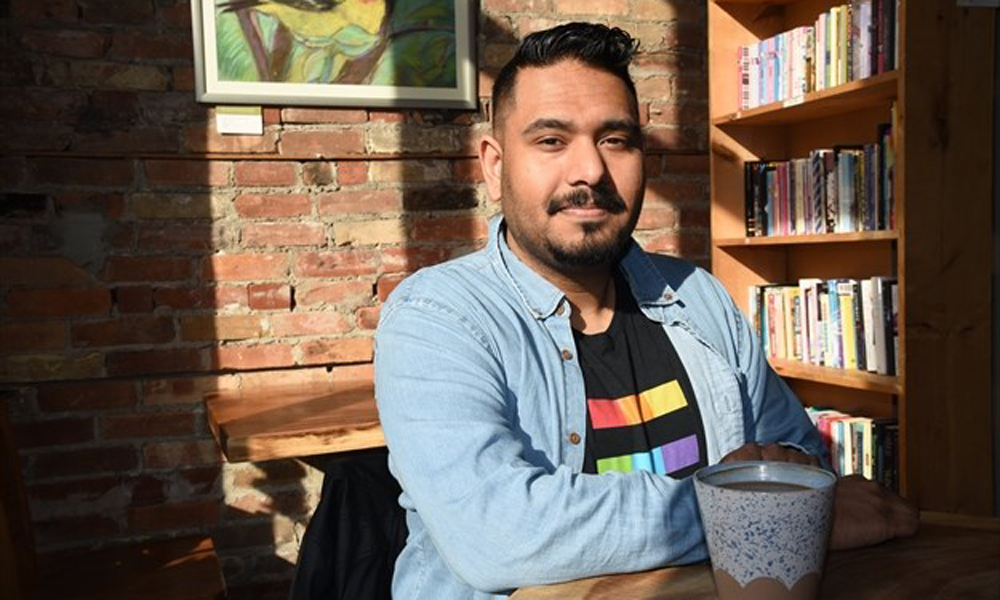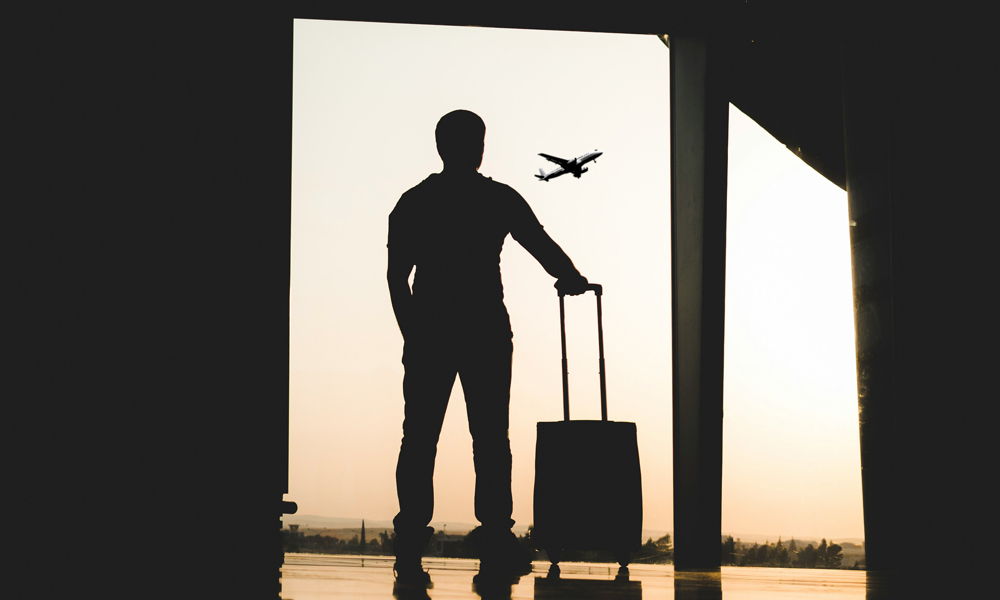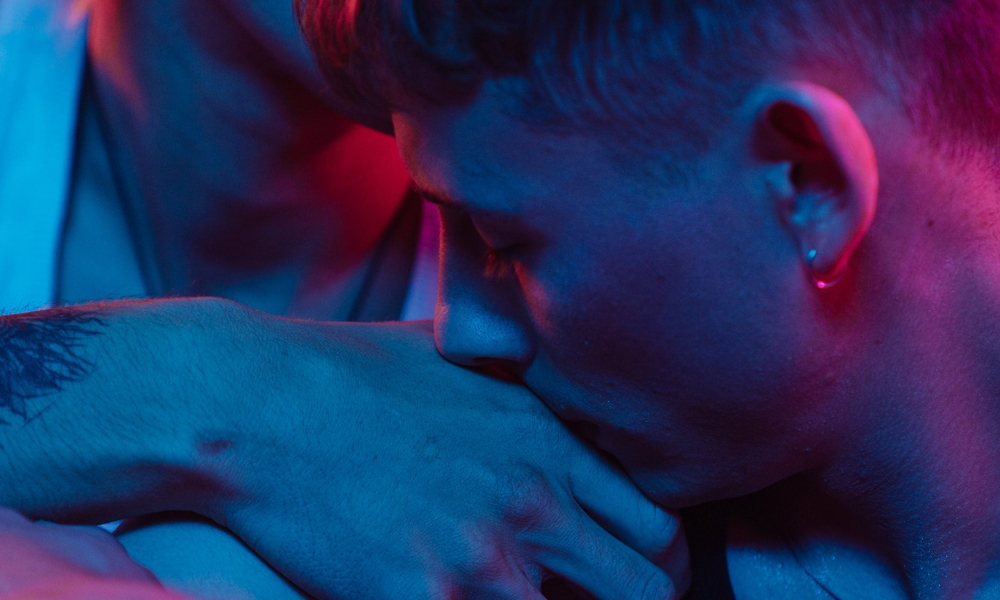Q&A with Pflag York Region president Tristan Coolman on the challenges of queer life in the suburbs…
By Jumol Royes
If you live in Toronto, it’s fairly easy to access LGBTQ2+ services in and around the Church-Wellesley Village; if you reside outside the city limits, these services become difficult to find.
COVID-19 has made city life less appealing so it should come as no surprise that an increasing number of people are thinking of leaving the city in search of a more laid-back existence.
Ninety Minutes from Toronto is a website that compiles a list of towns and cities within an hour and a half drive from the city centre. In addition to stats on average house prices and rent, it also provides information about the percentage of the population that identifies as Black, Indigenous or people of colour, as well as whether or not the community celebrates Pride and has queer-positive places of worship.
On the flip side, escaping cramped condos and high costs of living comes at price: Areas outside of Toronto like York Region face a lack of LGBTQ2+ specialized services including housing and support groups.
IN connected with Tristan Coolman, president of Pflag York Region, a volunteer-led organization offering LGBTQ2+ support, resources and education, to talk about the challenges of queer life in the suburbs.
What explains the lack of LGBTQ2+ services in York Region when compared to cities like Toronto?
There are a number of issues at play here. The primary driver behind this is an assumption of the demographics that make up the population of suburban areas versus cities. Cities are generally thought to be more diverse and multicultural and the suburbs are generally thought to be full of families. Demographics, however, are more nuanced than that and the stereotypes and assumptions of who makes up the population of cities, suburbs or smaller towns can be dispelled by our elected officials paying better attention to or better investing in detailed data collection.
Education can go a long way towards changing the narrative. It’s why Pflag Canada and Pflag York Region partnered together to fight to keep and maintain the modernized sex-ed curriculum our current provincial leaders modified. When we gain a better understanding of how we’re different and how our current systems and institutions work against or are unwelcoming to marginalized groups, they become issues we can no longer ignore.
So why are LGBTQ2+ friendly services so difficult to find outside the city?
There is no “hub” in York Region like the Church-Wellesley Village.
Some service providers, Pflag included, operate remotely or partner with other agencies to rent space for support meetings. CAYR Community Connections is a fantastic service provider located on Yonge Street in Richmond Hill and they are fairly accessible via public transit. They offer social meetings, support, harm reduction services and a food pantry. Yet despite their presence and advertising, service providers like CAYR and Pflag ultimately are hurt by the idea that there is no, or a much smaller, LGBTQ2+ community in York Region. Sometimes, even with all the steps we’ve taken, our services are simply not shared.
York Region is over double the area of Toronto with a much smaller population density per square kilometer (or a smaller population spread out over a larger area). Factor in further intersections impacting LGBTQ2+ folks, like a generally lower socio-economic status, and it becomes obvious why services are more difficult to find. As a transit user myself, and someone who lives in York Region, commuting to Toronto is oftentimes quicker, faster and more reliable than commuting within the region; I can access the subway and visit The 519 and other service providers in Toronto more easily than I can in York Region.
Services and hubs like those in Toronto didn’t pop up overnight. They were built over decades by everyday folks like you and I. Organizations like Pflag York Region that are entirely volunteer based struggle to grow our services because the work is thankless; it’s done on our own time in addition to balancing a full-time job and other family or personal commitments. I have a great team around me, but some vacancies as well.
So if you’re reading this and you’re willing to make a significant and ongoing contribution of your personal time to help agencies like ours, please reach out.
The first Rainbow Crosswalk was installed in York Region last month and within days it was vandalized. How do we push back against these acts of aggression?
We need to get back to basics when holding individuals accountable. Should we choose to engage those people who wish to invalidate our lived experiences, we need to do a better job of rising above their level of discourse. Recent years, especially over the last few months, have seen a rise in the use of terms that work to infantilize the causes of the marginalized. Terms like “cancel culture” and labelling white women as “Karens” don’t advance any arguments; they’re akin to schoolyard name-calling. We need to ask logical, pointed questions. Ask for data sources. Ask why these people feel the way they do. It’s through these means of discourse that you can uncover the true intent behind the behaviours.
JK Rowling for example is not a victim of cancel culture nor is she a TERF (trans-exclusionary radical feminist). She’s being held accountable for comments about trans lived experiences that have no basis in fact. She continues to write literature based on age-old Hollywood stereotypes. To be anti-trans, and in Rowling’s case, discriminatory against trans-women, is not feminist, but anti-feminist. It’s plain old bigotry. Her behaviours reflect bigoted, anti-feminist, transphobic intent, and any damage to her reputation due to those labels is well deserved.
The same process for accountability can be universally applied to acts of hate in our local communities including the individuals who vandalized York Region’s first Rainbow Crosswalk. They’re not behaviours of a “Karen”, they are behaviours of bigotry. We push back with discourse rooted in logic and reason because behaviours and intent laced in discrimination, racism and bigotry never hold their weight in these discussions. They’re easily broken down brick by brick until the person has no shield to justify their actions.
What role do allies play in helping to create more inclusive communities for LGBTQ2+ people?
As we’ve been learning over the last few months, marginalized groups need allies who support their cause and align with their direction, not question it. We generally need to have more care for everyone in our communities in an effort to better understand their experiences. At Pflag York Region, we continue to have families reach out to us seeking support and advice for their kids who are discriminated against, bullied and kicked off local sports teams, and trans folks who encounter hateful graffiti in washrooms at their places of work.
We also need to become more united as a community. Internalized racism, homophobia and transphobia within the LGBTQ2+ community are no secret. We encounter it in public in the form of microaggressions and without filters in private on dating apps like Grindr and Scruff.
Living as an LGBTQ2+ individual means coming to terms with the reality that your lived experience will always be questioned. Living as a queer person with brown or black skin, or with Asian descent or other ethnic backgrounds, means coping with racism you’ll encounter even from those who align with your sex or gender identity. To cope and fight back, we’re required to develop a form of resiliency just as a means for survival.
I truly believe there are more allies out there; we just need them to be as visible as queer folks strive to be. Our need for visibility is driven by our need to push back against the daily challenges that continue to invalidate our lived experiences. The best way to fight these forms of hate are with even bigger and louder forms of visibility, coupled with education and judgment-free environments for those who want to support us, but may not always get it right. We need to engage in logical discourse when possible because that is the last thing those with the intent to hate and harm want to face.
In response to COVID-19, Pflag York Region shifted its coffee nights from in-person meetups to online. Who are you trying to reach with these virtual gatherings and what can people expect to get out of them?
Our support meetings strive to connect people who have been through the journey of coming out or supporting a loved one with people who are in need and have no one else to turn to.
Our coffee nights try to break down the region’s geographical barriers through our online presence. When the pandemic is over, we look forward to pursuing a hybrid model of in-person and online meetings knowing that there are those who prefer one over the other, in addition to each model presenting its own unique accessibility challenges, despite our best efforts. We’re also looking to provide a more educational approach to our coffee nights with presentations by our community partners on a variety of topics – from finding trans resources and services to faith and LGBTQ2+ identities, amongst other topics.
Our online meetings now present a unique opportunity that our in-person meetings didn’t allow for: true anonymity. Though we do need to collect some contact information in order for attendees to receive unique log-in links for each meeting, you can make an email separate from your main one and log on without video or audio, change or remove your screen name and just sit and listen.
Discussions vary by the meeting. Sometimes folks are looking for ideas or support in coming out, other times we connect on pop culture or trending news stories. Recent discussions have ranged from how everyone is coping with being queer and living with the isolation brought on by the COVID-19 pandemic, to the movement supporting racial justice in the United States and how it applies to Canada and within the LGBTQ2+ community.
We want LGBTQ2+ individuals, both in and outside of York Region, to feel supported and affirmed and to know that there are others in their community who are going through or have gone through similar journeys. We strive for our support meetings to be a vessel for support and connection. We don’t want our LGBTQ2+ family at large to feel alone; we want to bring them together. It’s why we want as many people as possible to know that Pflag York Region and all of our partners exist and are here for you.
We’re here to connect you all together, to listen to your current challenges and offer as much support as we can.
—
JUMOL ROYES is a Toronto-area storyteller, communications strategist and glass-half-full kinda guy. He writes about compassion, community, identity and belonging. His guilty pleasure is watching the Real Housewives. Follow him on Twitter @Jumol and on Instagram @jumolroyes.






POST A COMMENT